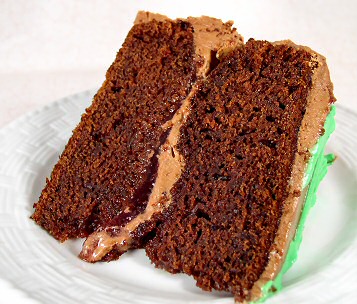Breaking
Down the Facts and Myths on Weathering and Erosion
When I
talk to people about Weathering and Erosion I can hear some crazy things. Some people insist that because they can’t
see it, it doesn’t happen. Others will
act as if this is an overnight process, which is also wrong. The answer lies somewhere in between the
two. So let’s start breaking the
barriers and getting this straight.
Myth #1: Rocks Don't Change
Rocks do change. I am honestly
surprised this is even on the list because everyone learns about Sedimentary
rocks in Earth Science Class. Those are
the rocks that from because of Weathering
and Erosion. But sedimentary
rocks aren’t the only rocks that can change.
Metamorphic rocks are a direct result of partial melting caused by
temperature and pressure. Even the word
metamorphic comes from Metamorphosis, which literally means to change. And since igneous rocks can change too, I
don’t want to hear one more word on the argument that rocks don’t change!
But that’s not what I meant by change!
Ok so fine, what you really mean is that you cannot observe the process
of weathering on a rock right? You guess
so. Well it’s true that you cannot directly observe weathering. Like most Earth processes it is very
slow. But you can however observe the
effects of weathering. They are all
around you, especially at the beach. The
little pebbles and grains of sand at the beach were once large rocks. These once large rocks were exposed to the
environment and through the processes of weathering and erosion are now placed
on the beach which you walk on.
Still having trouble with this?
Okay let’s use an analogy. You
are standing on a mountain made completely out of rocks. This mountain will be a big slice of
cake. The flavor doesn’t matter here, so
pick whichever one you want. Now look at
the surface of your cake, notice how it is rough and bumpy, like real rocks
are. What would happen if you pour a
glass of water on your slice of cake?
Aside from being soggy you may
notice a few crumbs broke off and fell down to the plate. Now if those were rocks, you just exposed
them to weathering (the water poured on them), and erosion (the water carrying
the crumbs down the slice of cake). Your
cake is still there, but you took away some pieces as pebbles and stones. Now revisit the surface of your cake. It has changed and exposed new rocks. This is another indicator of weathering and
erosion.
Another form of weathering occurs to your little rocks themselves. A rock that is rounded over has likely seen a
large amount of physical weathering. You
can even tell how far a rock has travelled based on how rounded it is. So you see, weathering and erosion are all
around you, you just need to know where to look. So if I hear anyone of my readers saying that
rocks don’t change I will personally come over to your house and talk some
sense into you!
Myth #2: Weathering and Erosion are the Same Thing
So now we will move on to my next point, weathering and erosion are not
the same thing. Weathering is a process
(whether physical or chemical) that breaks down the rocks. Erosion is the transportation of
sediments. In other words weathering
leads to erosion, but they are not the same thing!
Myth #3: Weathering and Erosion Are Always Bad
So now that we have cleared that up, let’s hit my final point for the
day, erosion is not always bad. If you remember
just a few minutes ago I was talking about beaches. Those wonderful places where you can sit and
relax and read a good book or whatever…well without erosion they wouldn’t
exist! But wait, you’re telling me that
erosion is bad because it destroys the beaches.
Well this is also true. You have
to remember that the Earth is constantly changing, some beaches are being
“destroyed” while others are being created.
Although it is true that erosion leads to soil loss, ecosystem
destruction, and sediment build-up in water supplies, we have to remember that
it is good too. Erosion leads to the
formation of River Deltas, like at the Nile and the Mississippi. Erosion also leads to fantastic farming
soils, which make the food that keeps us alive.
So yeah, next time you want to bash erosion, remember that it directly
contributes to your ability to eat cake!




No comments:
Post a Comment